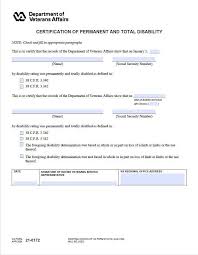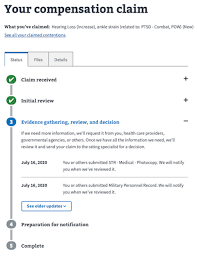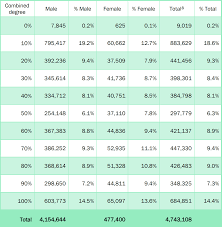Understanding Total and Permanent Disability (TPD) Benefits from the VA
For veterans who have suffered severe disabilities as a result of their service, the Department of Veterans Affairs (VA) offers Total and Permanent Disability (TPD) benefits. These benefits are designed to provide financial support to veterans who are unable to work due to their service-connected disabilities.
Qualifying for TPD benefits requires that a veteran’s disability be rated as 100% disabling by the VA. This means that the disability must be considered total and permanent, leaving the veteran unable to engage in substantial gainful employment.
Once approved for TPD benefits, veterans may receive monthly compensation from the VA to help cover living expenses and medical costs associated with their disabilities. In addition to financial support, TPD beneficiaries may also be eligible for other benefits such as healthcare coverage through the VA.
It is important for veterans seeking TPD benefits to provide thorough documentation of their service-connected disabilities and how these disabilities impact their ability to work. The VA will review this information carefully to determine eligibility for TPD benefits.
If you believe you may qualify for Total and Permanent Disability benefits from the VA, it is recommended to contact your local VA office or a Veterans Service Organization for assistance with the application process. These organizations can provide guidance and support throughout the application process to help you access the benefits you deserve.
Comprehensive Benefits for Veterans with Total and Permanent Disabilities
- Financial support for veterans unable to work due to service-connected disabilities.
- Monthly compensation provided to cover living expenses and medical costs.
- Healthcare coverage through the VA may be available for TPD beneficiaries.
- Support for veterans with disabilities rated as 100% disabling by the VA.
- Assistance in accessing benefits and navigating the application process.
- Recognition and acknowledgment of the sacrifices made by disabled veterans.
- Ensures that no veteran is left without necessary financial assistance.
7 Drawbacks of Total and Permanent Disability VA Status
- Loss of ability to work and earn income
- Dependence on disability benefits for financial support
- Limited opportunities for career advancement or job changes
- Potential social isolation due to inability to participate in work activities
- Increased reliance on others for daily tasks and activities
- Challenges in maintaining a sense of purpose and fulfillment without work
- Potential impact on mental health due to loss of independence and productivity
Financial support for veterans unable to work due to service-connected disabilities.
One significant advantage of Total and Permanent Disability (TPD) benefits from the VA is the provision of financial support for veterans who are unable to work as a result of service-connected disabilities. This crucial assistance helps alleviate the financial burden on veterans facing challenges in securing employment due to their disabilities incurred during their service. By providing monthly compensation, TPD benefits offer a vital lifeline for these veterans, helping them cover essential living expenses and medical costs while they focus on their health and well-being.
Monthly compensation provided to cover living expenses and medical costs.
One significant advantage of Total and Permanent Disability (TPD) benefits from the VA is the provision of monthly compensation to cover living expenses and medical costs. This financial support can alleviate the burden on veterans who are unable to work due to their service-connected disabilities, ensuring they have the means to meet their basic needs and access necessary medical care. By receiving this monthly compensation, TPD beneficiaries can focus on their health and well-being without worrying about financial hardships, providing them with a sense of security and stability in their daily lives.
Healthcare coverage through the VA may be available for TPD beneficiaries.
TPD beneficiaries of Total and Permanent Disability (TPD) benefits from the VA may have access to healthcare coverage through the VA. This pro provides invaluable support to veterans who are facing significant health challenges due to their service-connected disabilities. By offering healthcare coverage, the VA helps ensure that TPD beneficiaries have access to necessary medical treatments, medications, and services without the burden of high healthcare costs. This benefit not only supports the physical well-being of veterans but also contributes to their overall quality of life by providing essential healthcare resources.
Support for veterans with disabilities rated as 100% disabling by the VA.
One significant advantage of Total and Permanent Disability (TPD) benefits from the VA is the crucial support it provides to veterans whose disabilities are rated as 100% disabling. This support ensures that veterans who are unable to work due to their service-connected disabilities receive the financial assistance they need to cover living expenses and medical costs. By offering this vital support, the VA helps these veterans navigate the challenges of living with total and permanent disabilities, allowing them to focus on their well-being and quality of life.
Assistance in accessing benefits and navigating the application process.
One significant advantage of Total and Permanent Disability (TPD) benefits from the VA is the assistance provided in accessing benefits and navigating the application process. Veterans who are totally and permanently disabled often face challenges in understanding and completing the necessary paperwork to receive benefits. With TPD benefits, veterans receive support and guidance to help them through the application process, ensuring they have access to the financial assistance and healthcare coverage they need. This assistance can greatly alleviate stress and confusion for veterans, allowing them to focus on their well-being and recovery.
Recognition and acknowledgment of the sacrifices made by disabled veterans.
One significant pro of Total and Permanent Disability (TPD) benefits from the VA is the recognition and acknowledgment of the sacrifices made by disabled veterans. By providing financial support and assistance to veterans who are unable to work due to service-connected disabilities, TPD benefits honor the commitment and dedication of these individuals who have served their country. This acknowledgement helps validate the challenges faced by disabled veterans and demonstrates a commitment to supporting them in their time of need.
Ensures that no veteran is left without necessary financial assistance.
By providing Total and Permanent Disability (TPD) benefits, the VA ensures that no veteran is left without necessary financial assistance. This pro of the TPD benefits program offers crucial support to veterans who are unable to work due to service-connected disabilities, helping them cover living expenses and medical costs. The VA’s commitment to providing financial aid to totally and permanently disabled veterans underscores its dedication to supporting those who have sacrificed for their country, ensuring that they receive the assistance they need to maintain a decent quality of life.
Loss of ability to work and earn income
One significant con of being classified as totally and permanently disabled by the VA is the loss of ability to work and earn income. For many veterans, their work is not just a source of income, but also a source of purpose and fulfillment. Being unable to work due to severe disabilities can lead to financial strain and emotional distress, as veterans may struggle to support themselves and their families. This loss of independence and financial stability can be challenging to cope with, adding another layer of difficulty to an already challenging situation.
Dependence on disability benefits for financial support
One significant drawback of being totally and permanently disabled and relying on VA disability benefits for financial support is the potential risk of becoming overly dependent on these benefits. While the financial assistance provided by the VA is crucial for meeting daily living expenses and medical needs, relying solely on these benefits may limit one’s financial independence and ability to pursue other opportunities for income generation. This dependence can create a sense of uncertainty about future financial stability, especially if there are changes in benefit amounts or eligibility criteria. It is important for individuals receiving VA disability benefits to explore additional avenues for financial security and consider long-term financial planning to mitigate the risks associated with sole reliance on disability benefits.
Limited opportunities for career advancement or job changes
One significant drawback for veterans classified as totally and permanently disabled by the VA is the limited opportunities for career advancement or job changes. Due to the nature of their disabilities, these veterans may face challenges in pursuing new career paths or seeking promotions within their current employment. This limitation can hinder their ability to explore different job opportunities or progress in their chosen field, potentially leading to feelings of stagnation and frustration. It is essential for support systems and resources to be in place to help these veterans navigate these obstacles and find alternative ways to contribute meaningfully despite the limitations imposed by their disabilities.
Potential social isolation due to inability to participate in work activities
One significant con of being totally and permanently disabled and receiving VA benefits is the potential for social isolation due to the inability to participate in work activities. For many individuals, work serves as a key source of social interaction, a sense of purpose, and connection to others. Being unable to engage in employment due to disability can lead to feelings of loneliness and isolation, impacting one’s mental well-being. It is important for individuals facing this challenge to seek out alternative ways to stay connected with their community and maintain a sense of belonging despite their limitations.
Increased reliance on others for daily tasks and activities
One significant challenge faced by veterans who are totally and permanently disabled and receive VA benefits is the increased reliance on others for daily tasks and activities. These veterans may require assistance with basic activities of daily living, such as dressing, bathing, cooking, and transportation. This loss of independence can be emotionally difficult for individuals who were once self-sufficient, leading to feelings of frustration and dependency. Additionally, relying on others for support can pose logistical challenges in terms of coordinating care and ensuring that all needs are met consistently.
Challenges in maintaining a sense of purpose and fulfillment without work
One significant challenge faced by veterans who are totally and permanently disabled and receiving VA benefits is the struggle to maintain a sense of purpose and fulfillment without the ability to work. For many veterans, their work was not only a source of income but also a vital part of their identity and daily routine. Adjusting to a life without work can lead to feelings of isolation, loss of direction, and a lack of fulfillment. Finding new ways to stay engaged, connected, and fulfilled post-disability can be a daunting task for these veterans. It is crucial for support systems, including mental health services and community resources, to address these challenges and help veterans navigate this transition effectively.
Potential impact on mental health due to loss of independence and productivity
One significant con of being totally and permanently disabled and relying on VA benefits is the potential impact on mental health. The loss of independence and productivity that often accompanies severe disabilities can lead to feelings of frustration, helplessness, and isolation. Coping with the inability to work or engage in activities that were once fulfilling can take a toll on mental well-being. It is crucial for individuals facing this challenge to seek support from mental health professionals, support groups, and loved ones to address these emotional struggles and maintain a positive outlook on life despite the limitations imposed by their disability.




